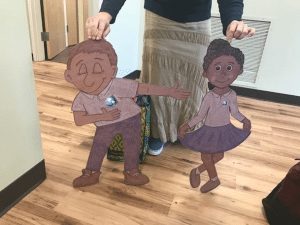Montessori Education Philosophy: Why Independence Matters from the Start
From the moment a child enters a Montessori classroom, everything is designed to foster one key trait: independence. Whether it’s a toddler learning to put on their own shoes or a preschooler choosing their math work, the goal isn’t perfection, but ownership.
In the Montessori education philosophy, independence isn’t a side benefit. It’s the foundation. It shapes how teachers guide, how classrooms are arranged, and how children grow into capable, self-motivated learners.
Let’s explore why independence matters from the start and how it’s built into every part of a Montessori child’s experience.
Independence Is the Root of Confidence
Many parenting and teaching models focus on building confidence by offering praise, encouragement, or structured routines. Montessori takes a different route: it builds confidence by giving children real responsibility.
In Montessori classrooms, children:
- Pour their own water
- Clean up their spills
- Zip their own jackets
- Choose their own work
Each time they complete a task on their own, they experience success that’s earned—not given. This deep sense of capability forms the emotional core of confidence.
The Environment Encourages Freedom Within Limits
One of the most misunderstood aspects of the Montessori education philosophy is the idea of “freedom.” In Montessori, freedom doesn’t mean chaos. It means freedom within limits—a child can choose their work, but from a curated set of meaningful options.
Classrooms are intentionally arranged to support this:
- Low shelves with accessible materials
- Child-sized furniture for real use
- Activities that are self-correcting and complete
Children don’t need constant adult direction because the environment supports decision-making at every turn.
How Montessori Develops Executive Function
Executive function, the mental skills used to plan, focus, remember instructions, and manage multiple tasks, is strongly linked to success in school and life. Montessori education is uniquely positioned to support its development.
Children in Montessori classrooms:
- Choose and complete multi-step activities
- Track their own progress
- Learn time management organically
- Solve real problems without being “rescued”
These aren’t isolated academic exercises. They’re habits of thinking, formed through consistent practice in a thoughtful environment.
The Power of Practical Life
In the Primary years (ages 3–6), Montessori classrooms include an area called Practical Life. It includes tasks like pouring, sweeping, buttoning, and food preparation—real work with real tools.
Why is this so important?
Because it builds:
- Coordination: through repeated physical movement
- Concentration: through sustained, self-chosen effort
- Order: by following logical steps
- Independence: by mastering everyday tasks
These skills are foundational for cognitive and emotional development. Practical Life shows children they are capable, useful, and trusted.
Respect Is at the Core of Independence
In the Montessori education philosophy, independence stems from respect. Respect for the child’s pace, their interests, and their ability to grow when given the chance.
That’s why Montessori classrooms don’t rush children from one activity to the next. There’s time to repeat, to refine, to reflect.
Montessori teachers offer guidance when needed, but they also know when to step back. It’s not about pushing a child to be independent, but preparing the path and trusting the process.
How MKU Embeds Independence at Every Age
In the Montessori philosophy, independence is embedded from infancy through kindergarten:
- In Infant rooms, teachers use gentle language and allow babies to reach, crawl, and explore without restriction.
- In Toddler classrooms, children practice dressing, cleaning, and preparing simple foods with real tools.
- In Primary classrooms, children plan their work, manage time, and even care for classroom plants or pets.
- In enrichment programs like Reggio-inspired art and DaVinci Kids STEAM labs, children ask their own questions and seek their own answers.
Every moment is an opportunity to build independence. Not through pressure, but through trust and readiness.
Why It Matters Beyond the Classroom
Independence gained in a Montessori classroom doesn’t stay there. It comes home and stays with a child for life. Parents often report:
- Children taking initiative in daily routines
- Better emotional regulation during transitions
- Fewer power struggles around tasks like dressing or clean-up
- A growing sense of pride and self-worth
It’s about being empowered, because when children know they are capable, they behave accordingly.
Real-World Confidence Starts Early
In a world where many young children are rushed through benchmarks or shielded from difficulty, Montessori takes a slower, more intentional route.
It teaches children:
- That mistakes are part of learning
- That they don’t need constant help to be successful
- That they are trusted and respected
- That they can do hard things
These lessons are internalized early and carried forward for school, for relationships, for life.
See Montessori in Action
Our classrooms are prepared to honor every child’s journey toward self-reliance, confidence, and curiosity. Visit your local MKU to see how the Montessori education philosophy plays out in real life!


